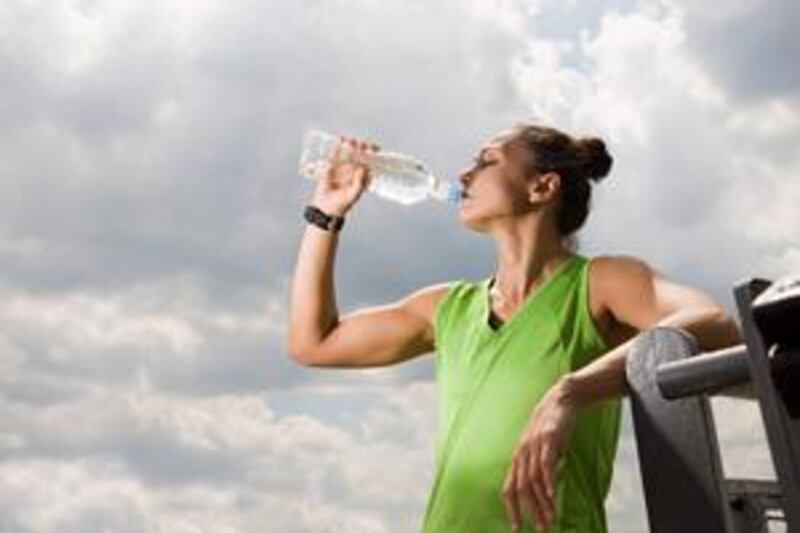It is often said that the Inuit in Canada's north have over 100 words to describe snow - from its colour to its texture and the size of the flakes. Sometimes it feels like we need that many words to describe the summer heat here in the UAE. While sizzling, scorching, steaming and scalding are all good adjectives, the intensity can at times simply be beyond words. One that does spring to mind when I think about the heat is "water". It is during these months that I gain a whole new appreciation for this simple, natural substance.
And with good reason - it is estimated that our bodies are more than 60 per cent water, and water performs many different roles in keeping us in top form, regulating our body temperature, removing toxins, carrying nutrients to the cells and cushioning vital organs. And since water is constantly being removed from the body, it is important to replace it on a daily basis. The amount of water you need each day has long been a cause for debate. Recent general recommendations from the Institute of Medicine in the United States suggest women should drink 2.7 litres and men 3.7 litres for good health. That works out to be between 10 and 14 glasses a day. Of course, individual requirements can vary depending on age and medical conditions. Factors including exercise and hot weather can nudge that number up even more. It certainly sounds like a lot but it's easier than you might think to stock up.
Most beverages, including water, tea, coffee, milk, soda and juice all contribute to daily fluid requirements but it goes without saying that some choices are healthier than others. Stay clear of sugar-filled juice and soda, and be wary of caffeine, which acts as a diuretic, causing the body to lose fluids. Low-fat and fortified soy milk are healthy choices thanks to their high calcium content. As for sports drinks, beverages that contain sugar and electrolytes including sodium and potassium are appropriate for some people, but not all. They are OK for anyone who engages in vigorous activity for more than an hour, or who has lost a lot of fluid through sweating excessively after spending an extended period of time outside. However, in most instances, water is at the top of the list as the healthiest choice for staying hydrated.
If you have trouble drinking enough, there are some easy strategies to help boost your intake. Start by having a tall glass of water with every meal and snack. If you work at your desk, keep a glass or bottle of water within reach for small sips through the day. As for travelling around, keep a water bottle in your car and a small one in your bag. If the plain taste of water has you falling short of your intake, get creative. Instead of reaching for overly sweetened juice and soda, add some fresh mint and a squeeze of lemon to your water, or pop in a herbal tea bag for a calorie-free iced tea. Instead of ice cubes, try using pieces of frozen fruit to chill your drink and add flavour.
Don't rely on thirst as an alert to drink up. By the time you are feeling thirsty you are already well on your way to being dehydrated. Symptoms include headaches, irritability and dry mouth. This condition is especially important to avoid in hot weather. Drinking is not the only way to meet fluid requirements. Food can contribute a hefty amount, with the added benefit of fibre, vitamins and minerals. Some fruits and vegetables are as much as 90 per cent water, making them an excellent choice when temperatures soar. Watermelon, tomatoes, grapes, cucumbers and berries are full of water. Low-sodium soups, low-fat yogurt, pasta and rice are other foods that get top marks for their fluid content.











